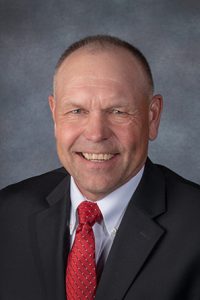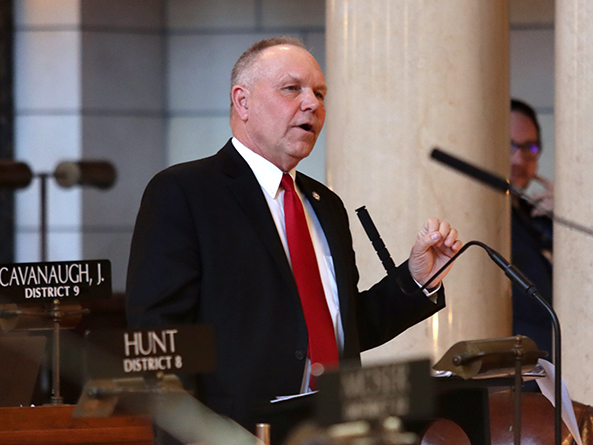Dark fiber licensing proposal amended, advanced
Lawmakers gave first-round approval Feb. 15 to a bill intended to speed the deployment of broadband internet service to Nebraska’s rural communities.

Under LB61, introduced by Sen. Tom Brandt of Plymouth, any agency or political subdivision of the state may lease or license the unused or “dark” portions of its fiber optic telecommunications infrastructure.
Brandt said current law allowing the lease of dark fiber is outdated and restrictive, preventing public power districts from leasing the unused strands of the fiber optic cables that interconnect their substations.
The public-private partnerships allowed under LB61 would make it more cost-effective to expand broadband service to rural areas of the state and parts of Omaha, he said.
“This is not a silver bullet to get broadband out to all Nebraskans, but will certainly help,” Brandt said.
Brandt introduced an amendment that he said is a compromise between public power districts and internet providers. It would require the license rate to be within or above the safe harbor range of market rates established by the Nebraska Public Service Commission.
Brandt’s amendment also would require that revenue from the licensing of dark fiber be used only for costs associated with the license or existing dark fiber infrastructure. Revenue from the sale or delivery of electricity could not be used for costs associated with the license of dark fiber.
Bennington Sen. Wendy DeBoer introduced an amendment, adopted 32-0, that replaced the Brandt amendment with a modified version.
DeBoer said Brandt’s proposal would allow dark fiber licenses in areas where customers already have several broadband providers to choose from. The licensing of a public asset should be reserved for instances in which a provider expands high-speed internet service to areas of the state that do not currently have it, she said.
“We have many choices for broadband providers in Omaha,” DeBoer said, “and there are places in our state that have no choices.”
Under her amendment, dark fiber licenses would be allowed only if they are used to provide service to unserved locations, which the amendment defines as locations where broadband:
• is not available by certain technologies and at speeds of at least 100 megabits per second for downloading and at least 20 megabits per second for uploading; and
• no internet service provider has a legal agreement to make broadband service available at those speeds.
DeBoer said the amendment also would create a process by which a provider could file a challenge with the commission alleging that a location subject to a dark fiber lease is not an unserved location.
A provider would have to file the challenge within 30 days of receiving notice of the lease, and the commission would make a determination regarding the alleged violation within 30 days. If the commission finds that the location is an unserved location, the provider filing the challenge would be barred from filing additional challenges for two years.
After adopting Brandt’s amendment on a vote of 32-0, senators voted 34-2 to advance LB61 to select file.


